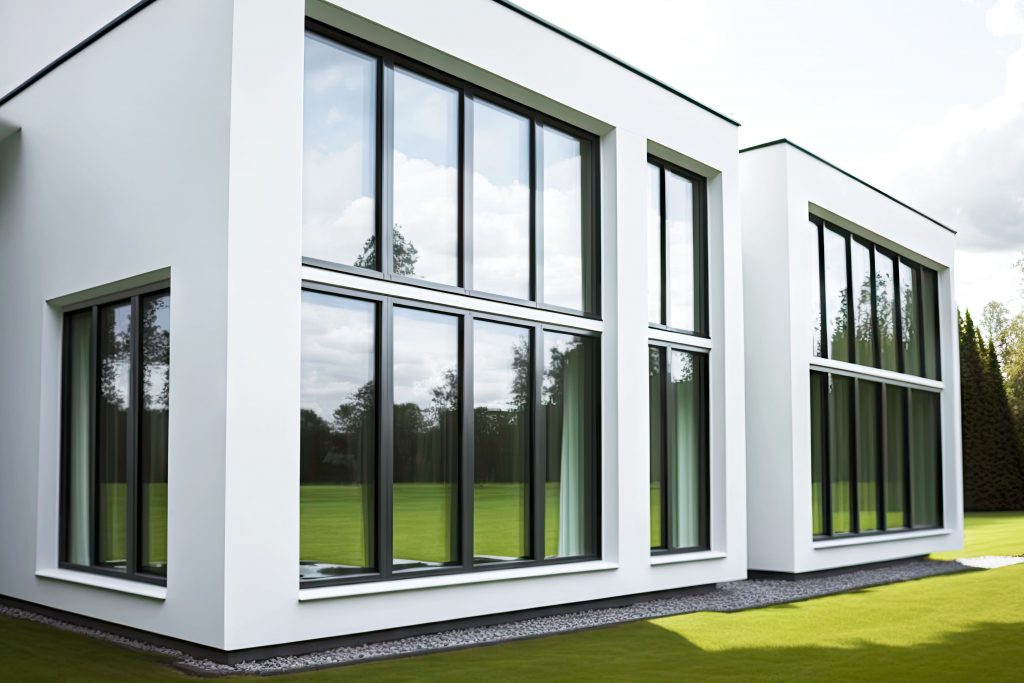
One of the primary reasons for the widespread adoption of aluminium in construction is its remarkable strength-to-weight ratio. Despite being lightweight, aluminium exhibits exceptional strength, making it an ideal choice for various structural components. Whether it’s in the form of beams, columns, or panels, aluminium offers robustness without compromising on durability, ensuring the longevity and stability of construction projects, even in demanding environments.
Aluminium’s malleability and formability open up a world of design possibilities for architects and designers. Unlike traditional materials, aluminium can be easily shaped and molded into intricate profiles, enabling the creation of bespoke architectural elements. From sleek curtain walls to curved canopies, aluminium empowers architects to turn their creative visions into reality, adding aesthetic appeal and distinctiveness to buildings of all types.
In construction projects, especially those in coastal or industrial areas, exposure to corrosive elements is a significant concern. Here, aluminium emerges as a reliable ally, thanks to its inherent corrosion resistance. Unlike steel or iron, which are susceptible to rust and degradation over time, aluminium forms a natural oxide layer upon exposure to air, providing a protective barrier against corrosion. This inherent property makes aluminium solutions an ideal choice for outdoor applications, ensuring structural integrity and minimal maintenance requirements.
In an era where sustainability is a top priority, aluminium shines as an eco-friendly material. Not only is aluminium abundant in nature, but it is also highly recyclable, with nearly 75% of all aluminium ever produced still in use today. The recycling process requires significantly less energy compared to primary production, making aluminium solutions a sustainable choice for construction projects aiming to minimize their environmental footprint. By opting for aluminium, builders can contribute to resource conservation and promote a circular economy in the construction industry.
With the increasing focus on energy efficiency in buildings, the thermal performance of construction materials has become a critical consideration. Aluminium’s excellent thermal conductivity allows for the efficient transfer of heat, facilitating the design of energy-efficient building envelopes. By incorporating thermal breaks and insulating materials, aluminium windows, doors, and facades can help regulate indoor temperatures, reduce heating and cooling costs, and enhance occupant comfort—all while minimizing carbon emissions.
As construction projects evolve to meet the demands of the modern world, the role of aluminium solutions continues to expand and diversify. From skyscrapers to residential homes, the unmatched strength and design flexibility of aluminium make it an indispensable material for various applications. Its inherent properties allow architects, engineers, and builders to push the boundaries of creativity and innovation, crafting structures that are not only aesthetically pleasing but also structurally sound.
One of the most compelling advantages of aluminium is its sustainability. As the construction industry shifts towards greener practices, aluminium’s recyclability and minimal environmental impact make it a preferred choice for eco-conscious projects. It can be recycled repeatedly without losing its properties, significantly reducing the carbon footprint associated with new constructions.
Moreover, aluminium’s thermal efficiency contributes to energy savings and enhances the overall comfort of buildings. Its excellent insulation properties help in maintaining optimal indoor temperatures, reducing the need for excessive heating or cooling. This, in turn, leads to lower energy consumption and cost savings, making aluminium an economically and environmentally sound investment.
The versatility of aluminium extends beyond its practical benefits. Its adaptability in design allows for sleek, modern finishes that can be customized to suit any architectural style. Whether it’s creating expansive glass facades that flood interiors with natural light or crafting intricate details that add character to a structure, aluminium provides endless possibilities for innovation.
As we look ahead to the future of construction, one thing remains clear: aluminium will continue to play a pivotal role in shaping the built environment. Its ability to meet the evolving demands of modern architecture while promoting sustainability and efficiency ensures that it will remain a cornerstone of construction materials for generations to come. Embracing aluminium solutions not only enhances the quality and functionality of buildings but also paves the way for a more sustainable and innovative construction industry.

Tel: 020 8902 1122
Email: sales@jspaluminium.com
Address: Unit 8, Byfleet Industrial Estate, Old’s Approach, Northwood, Watford WD18 9TS

Tel: 020 8902 1122
Email: sales@jspaluminium.com
Address: Unit 8, Byfleet Industrial Estate, Old’s Approach, Northwood, Watford WD18 9TS